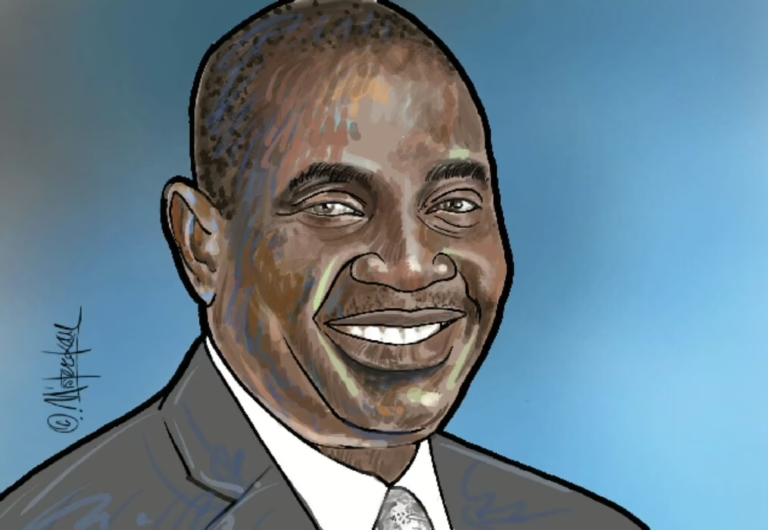At times, a nation loses more than an individual; it loses a guiding beacon. The death of Dr. Solomon E. Arase on August 31, 2025, marked such a moment-a sudden extinguishing of a steadfast light that had long exemplified what principled, respectful, and courageous policing in Nigeria could embody. He did not merely hold positions; he elevated them. From his early days in the Force Criminal Intelligence and Investigations Department, through his role as Principal Staff Officer to IGP Sunday Ehindero, to his tenure as Inspector-General of Police and later Chairman of the Police Service Commission, one constant remained: his quiet but firm belief that policing is a public trust, earned through consistent fairness rather than empty declarations.
What set Arase apart was not empty talk of reform but the solid framework he built around it. He championed the presumption of innocence not as a mere legal formality but as the foundation of public confidence. His approach to intelligence-led policing transcended slogans-it prioritized prevention over spectacle, early intervention over reactive force, and meticulous documentation to ensure outcomes commanded respect because the processes were just.
A Leader Rooted in Principle
Though we shared a close friendship, after his appointment in 2015, our discussions on political matters-especially during the turbulent post-2015 by-elections in Rivers State, which tragically claimed over 500 lives-often revealed differing perspectives. Despite my appeals, he remained unwavering in his principles, refusing to bend even with government backing. For him, adherence to conviction outweighed convenience. While our views diverged, mutual respect endured. When convinced of a cause, he pursued it with full dedication. Above all, he was a true patriot-his loyalty extended beyond Edo State or the South-South region to encompass all of Nigeria. His leadership was anchored in personal integrity and an unshakeable commitment to justice.
His influence is evident in reforms that have tangible impact. The Police Duty Solicitors Scheme, initiated as a Memorandum of Understanding in 2006, was brought to fruition through his persistent efforts, culminating in Force Order 20 in 2017. This initiative guarantees legal representation for detainees, embodying his dedication to fairness. Although his successor formalized the order, Arase laid the groundwork-completing drafts, defining procedures, and clarifying intentions. Today, fewer individuals face arbitrary detention, interviews are more frequently conducted with caution, and detention records are auditable rather than speculative-all thanks to his insistence that justice should not hinge on personalities.
Transparency and accountability were pillars of Dr. Arase’s leadership philosophy. He recognized these not as abstract ideals but as essential to a just society. His drive to digitize key functions within the FCID reflected this commitment. For him, transparency was not a public relations exercise but a traceable record-case tracking, maintaining the integrity of records, custody logs-these seemingly mundane systems were vital safeguards against lost files, misplaced suspects, and compromised evidence. His dedication to minimizing rights violations and building mechanisms to curb impunity demonstrated a leadership deeply rooted in principle and compassion.
Integrity-Driven Reform
As Chairman of the Police Service Commission, Dr. Arase carried his vision into new arenas. He championed merit-based recruitment and promotion, and insisted that discipline be governed by clear, consistent standards. He worked to close the gap between policy and practice by engaging civil society and human rights organizations as partners rather than adversaries. Unlike reformers who isolate themselves behind rank, he understood that lasting change requires coalition-building and shared responsibility. His leadership style was collaborative, not authoritarian.
Beyond his official roles, Dr. Arase was a compassionate individual in an often impersonal system. He established the Police Complaints Response Unit (CRU), providing citizens with a formal avenue to report police misconduct, and promoted community policing to strengthen trust between law enforcement and the public. He favored intelligence-led policing over illegal roadblocks, which frequently became venues for extortion.
He was candid about the challenges facing the police institution he cherished. At a 2017 seminar hosted by the Institute of Security Studies, he highlighted the lack of a unified national threat assessment to guide proactive policing, criticized the disproportionate budget allocations favoring headquarters over local stations, and advocated for the IGP to set standards while decentralizing operations and resources to where crimes occur. He openly condemned the erosion of investigative capacity and the shift from prevention to reactive policing. He also exposed the distortions caused by VIP security duties, where resources are diverted to protect a few at the expense of the many. His frankness underscored the urgency and necessity of his reform agenda.
Continuing Dr. Arase’s Vision
What Dr. Arase left behind is not merely a legacy to be remembered but a strategic blueprint to follow. He meticulously outlined the path forward: institutionalize effective practices and measure them transparently-such as PDSS compliance, custody monitoring dashboards, and publicly accessible complaint resolution timelines. Clearly define the boundaries between the Police Service Commission and the Nigeria Police Force to ensure recruitment, promotion, and discipline are transparent and merit-based rather than transactional. Restore the investigative core of the CID by protecting station budgets so that essential policing is not left to improvisation. Reduce VIP deployments and redirect skilled personnel to community policing and investigations. Complete the digitization initiatives he began, including real-time detention registers, case management systems with enforced deadlines, and chain-of-evidence protocols that make adherence to best practices the easiest path. Above all, transform police culture through scenario-based training emphasizing civility and procedural justice, supported by leadership development that values restraint as much as arrests.
Dr. Arase’s reforms have already yielded meaningful progress. The PDSS is no longer a pilot program but a codified standard with measurable outcomes. Digitization efforts have made files more transparent and less susceptible to tampering. The practice of involving civil society in reform discussions has gained widespread support. These are foundational achievements-stepping stones rather than endpoints-but foundations are crucial. They represent both an invitation and a challenge: to build upon them is to save resources, time, and lives; to ignore them is to risk repeating past mistakes with greater cynicism. His work offers a hopeful vision for the future of Nigerian policing, one grounded in justice and fairness.
I am deeply honored to have known, collaborated with, and learned from Dr. Arase. His life and service serve as a powerful reminder that true leadership transcends titles-it is measured by the impact we have on others and the legacies we leave behind. My sincere condolences go to his family. May they find strength and solace in this difficult time, and may Dr. Arase’s soul rest in eternal peace.

















